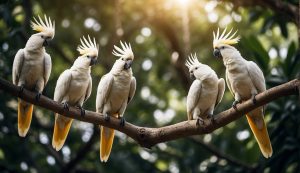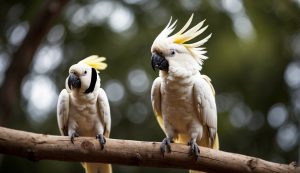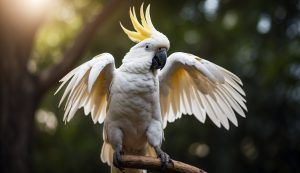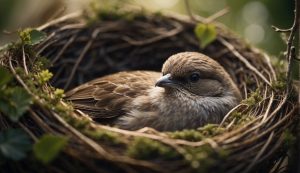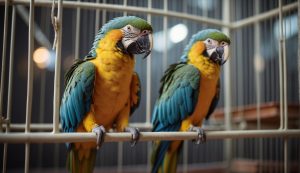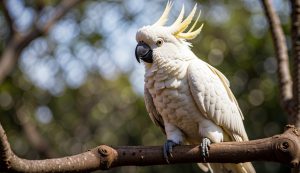What Do Cockatoos Eat? A Comprehensive Guide to Their Diet
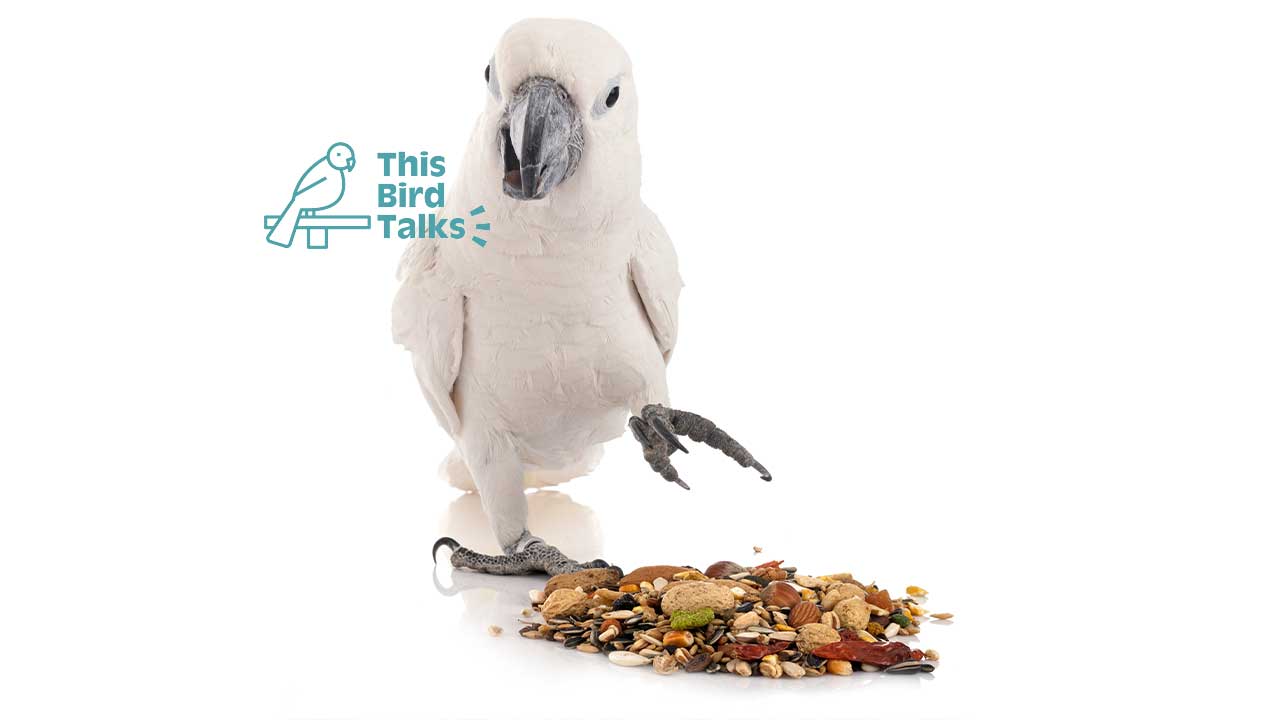
Cockatoos are a popular pet bird species known for their striking appearance and playful personalities. As with any pet, it is important to understand their dietary needs to ensure they remain healthy and happy.
In this article, we will explore what cockatoos eat in the wild and in captivity, as well as provide tips for feeding them a balanced diet.
Summary
In the wild, cockatoos are omnivores and their diet primarily consists of seeds, nuts, fruits, insects, and small reptiles or mammals.
But in captivity, they can be fed a diverse range of foods that provide them with the nutrients they need.
While a diet that is primarily seed-based was once thought to be sufficient, it is now known that this can lead to nutritional deficiencies and health problems.
It is important to provide a balanced diet that includes a variety of fresh fruits and vegetables, as well as protein sources such as cooked chicken or eggs.
Table of Contents
The Natural Diet of Cockatoos
Cockatoos are known to have a diverse diet in the wild. They feed on a variety of foods that include seeds, nuts, fruits, vegetables, insects, and other protein sources. A balanced diet is important for the cockatoos to maintain good health and nutrition. In this section, we will discuss the natural diet of cockatoos and the different food sources that they consume.
Seeds and Nuts
Seeds and nuts are a staple food for cockatoos in the wild. They have strong beaks that help them crack open the hard shells of the seeds and nuts. Cockatoos feed on a variety of seeds and nuts, including sunflower seeds, millet, almonds, and walnuts.
Fruits and Vegetables
Cockatoos also consume a variety of fruits and vegetables in the wild. Some of their favorite fruits include apples, berries, and figs. Vegetables such as carrots, broccoli, and spinach are also a part of their natural diet. Cockatoos have a strong beak that helps them break down the fruits and vegetables into smaller pieces.
Insects and Other Protein Sources
Insects and other protein sources are an essential part of the cockatoo’s diet. They provide the necessary protein and fat that the cockatoos need to maintain good health. Insects such as grasshoppers, termites, and ants are consumed by cockatoos in the wild. They also feed on small reptiles and mammals such as lizards and rodents.
Water and Minerals
Cockatoos require fresh water for drinking and bathing. They also require minerals such as salt and calcium for their bones and beaks. Cockatoos in the wild obtain these minerals by consuming soil and rocks.
To sum up, the natural diet of cockatoos is diverse and includes seeds, nuts, fruits, vegetables, insects, and other protein sources. Cockatoos require a balanced diet to maintain good health and nutrition. They also require fresh water and minerals such as salt and calcium. Cockatoos in the wild have adapted to their environment and have developed strong beaks and feet to help them obtain their food.
Do Cockatoos Eat Meat?
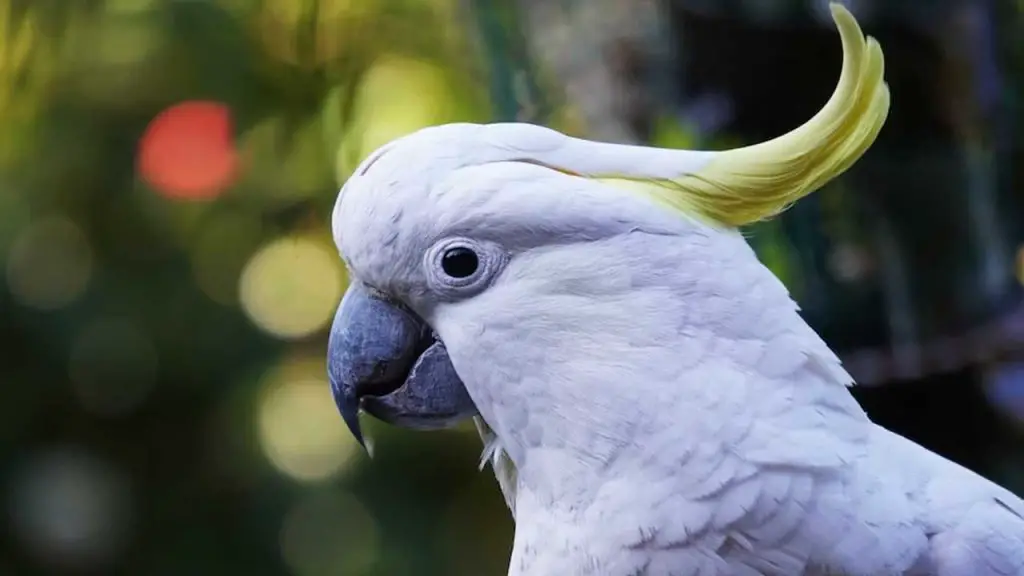
Cockatoos are omnivores, which means that they eat both plant and animal-based foods. While their diets primarily consist of seeds, fruits, and nuts, they can also eat meat. In the wild, cockatoos may eat insects, their larvae, and even small animals like lizards or mice.
However, it is important to note that meat should not make up a significant portion of a cockatoo’s diet. Too much meat can lead to health problems such as obesity and liver disease. It is important to provide a balanced diet that includes a variety of foods.
When feeding meat to a cockatoo, it is essential to ensure that it is cooked thoroughly and free of any bones. Raw or undercooked meat can contain harmful bacteria that can make your bird sick. It is also important to avoid feeding processed meats such as hot dogs or deli meats, as they are high in sodium and preservatives.
In general, it is best to limit the amount of meat that a cockatoo eats and to focus on providing a varied diet that includes plenty of fresh fruits and vegetables. By doing so, you can help ensure that your cockatoo stays healthy and happy for years to come.
Cockatoos in Captivity
When it comes to feeding pet birds like cockatoos, it is essential to provide them with a balanced and nutritious diet. In captivity, cockatoos require a diet that closely mimics their natural diet in the wild. This means providing them with a variety of fresh food, dry food, and clean water.
Pellets and Seed Mixes
Pellets and seed mixes are a popular choice for feeding pet cockatoos. These foods are designed to provide a balanced mix of proteins, carbohydrates, and fats, along with essential vitamins and minerals. However, it is important to choose high-quality pellets and seed mixes that do not contain any harmful additives or preservatives.
Fresh Fruits and Vegetables
Fresh fruits and vegetables should make up a significant portion of a cockatoo’s diet. These foods provide essential vitamins, minerals, and fiber that are important for maintaining good health. Some good choices include apples, bananas, oranges, carrots, broccoli, and spinach. It is important to wash all fruits and vegetables thoroughly and remove any seeds or pits that may be poisonous to birds.
Cooked Food
Cockatoos can also benefit from cooked food, such as brown rice, pasta, and boiled eggs. These foods provide additional protein and carbohydrates that can help keep birds healthy and active. However, it is important to avoid feeding birds any foods that contain salt, sugar, or pepper.
Water and Water Dishes
Fresh water should be available to cockatoos at all times. It is important to provide water in a clean, shallow dish that is easy for birds to access. Water dishes should be cleaned and refilled daily to prevent the growth of harmful bacteria.
In conclusion, feeding pet cockatoos a healthy and balanced diet is essential for maintaining their health and well-being. Owners should consult with an avian veterinarian to ensure that their birds are receiving all the necessary nutrients. By providing a variety of fresh food, dry food, and clean water, owners can help their cockatoos thrive in captivity.
Caring for Your Cockatoo’s Health
Cockatoos are intelligent and social birds that require proper care and attention to maintain their health and well-being. In this section, we will discuss some important aspects of caring for your cockatoo’s health.
Attention and Toys
Cockatoos are very social birds that require a lot of attention and interaction with their owners. They enjoy playing with toys, especially those that require them to use their beaks and feet. Providing your cockatoo with a variety of toys will help keep them mentally stimulated and prevent boredom.
It’s important to supervise your cockatoo when they are playing with toys to ensure they don’t injure themselves or ingest any small pieces. Toys should be rotated regularly to maintain your cockatoo’s interest.
Perches and Birdbaths
Cockatoos spend a lot of time on their perches, so it’s important to provide them with a variety of perches of different sizes and textures to prevent foot problems. Natural wood perches are a good option as they help maintain your cockatoo’s beak and nails.
Birdbaths are also important for your cockatoo’s health as they help keep their feathers clean and healthy. A shallow dish of water can be used as a birdbath.
Moods and Behavior
Cockatoos are very expressive birds that can display a range of moods and behaviors. It’s important to understand your cockatoo’s body language to determine their mood and prevent any potential health problems.
Signs of stress in cockatoos include feather plucking, aggression, and excessive screaming. Providing your cockatoo with a comfortable and stimulating environment can help prevent these behaviors.
Visiting an Avian Veterinarian
Regular visits to an avian veterinarian are essential for maintaining your cockatoo’s health. A veterinarian can perform a physical exam, provide vaccinations, and offer advice on nutrition and behavior.
It’s important to find an avian veterinarian who is experienced in treating cockatoos as they have specific health needs. Keeping a record of your cockatoo’s health history and any changes in behavior can help your veterinarian provide the best care possible.
Overall, caring for your cockatoo’s health requires attention to their physical and emotional needs. Providing a stimulating environment, regular veterinary care, and plenty of love and attention will help ensure your cockatoo lives a happy and healthy life.

